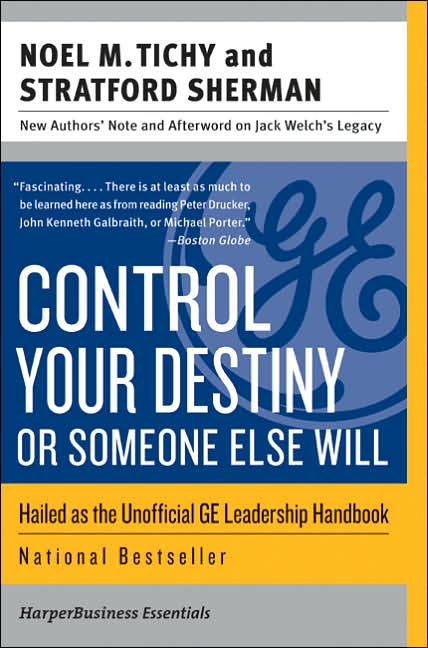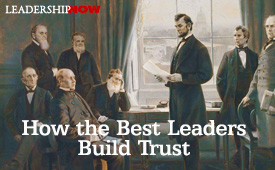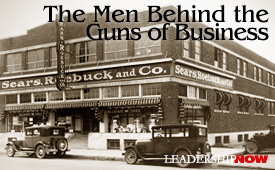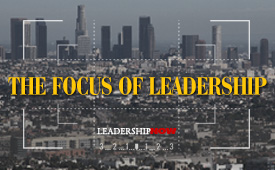
The GE Revolution | Reading Room BY NOEL M. TICHY AND STRATFORD SHERMAN |
One evening late in 1985, 1 dropped in on a classroom at General Electric's Crotonville management training center in Croton-on-Hudson, New York. Ranged around a rectangular conference table, ten young college graduates, all recently hired as GE junior managers, were ferociously debating two propositions scrawled on a flip chart at the front of the room:
Jack Welch is the greatest CEO GE has ever had. Jack Welch is an asshole. Rude stuff. At most major companies, including GE just a few years earlier, such irreverence might have cost these kids their careers. But as Crotonville's new director, I was delighted. In place of a traditional curriculum based on texts and lectures, we were encouraging the sort of no-holds-barred discussion that characterizes the CEO's most fruitful interactions with senior managers. The goal was to implant and nourish the values Welch cherishes: self-confidence, candor, and an unflinching willingness to face reality, even when it's painful. By then, John F. Welch, Jr., had been GE's chief executive for nearly five years, relentlessly pursuing an agenda of change so radical, so fundamental, and so threatening that it amounts to a revolution. He has taken the established order at GE and thrown it out the window; he presided over the elimination of scores of the company's businesses and over one third of its jobs-affecting a group as large as the entire population of Salt Lake City. As for the employees who remain, Welch has challenged everything they thought they knew. This forceful man, now fifty-seven, is creating a new organization at GE that depends as much on shared values as on hierarchy or coercion. Like most major corporations, GE previously relied on the doctrine of scientific management: the theory that any work process-including its human element-can be broken down to its component parts and then reassembled in an efficient or "scientific" manner. That sort of thinking fostered assembly lines and military-style hierarchies, which produced enormous wealth but generally alienated employees. By contrast, the values-based organization that is emerging at GE derives its efficiency from consensus: Workers who share their employer's goals don't need much supervision Blue-eyed and hot-blooded, Welch is a rebel who has matured into a leader. At 5'8", he is not physically imposing, but the intensity and power of his personality can overwhelm. His manner conveys urgency even when he's comparing golf scores or making friendly inquiries about your family. Relentlessly positive, he delights in his own enthusiasm; when displeased, he comes on like a battery of howitzers, flattening all opposition. "We've got a disaster here," he'll warn as he walks into a meeting, before even saying hello. Looking you straight in the eye, he'll tell you exactly what he thinks you've done wrong. But if you can withstand the barrage and talk back, Welch will listen; and if you can solve his problem, soon you will be basking in the warmth of the CEO's cheerful high spirits. Welch's successes as a leader depend less on his personality than on the quality of his thought. Smart, intellectually disciplined, and creative, Welch has developed a management style that exploits the power of breakthrough ideas. Some of his perceptions are primarily of interest to GE's employees; others have the potential to reshape organizations around the world. In my view, the twentieth century has produced two business leaders who will be remembered for their ideas: Alfred Sloan of General Motors and Jack Welch of GE. The company Welch inherited in 1981 was among the bluest of blue chips. Founded in 1878 by Thomas Edison, the inventor of the light bulb, General Electric was one of America's strongest competitors and one of the world's most admired corporations. Hardly anyone, inside the company or out, thought GE needed fixing. But where others saw strength, Welch saw weakness. GE's executives, disciplined but submissive, knew how to follow the company's rigid rules. But when the outside world started to change, many of GE's procedures and systems became irrelevant. The self-confidence that had characterized the company's managers began to erode. Left to pursue its course for another decade or so, this apparently healthy company might have become another Chrysler. Instead of waiting for trouble, the CEO pushed for radical change long before most people recognized it as necessary. America's eminent corporations, from GE to General Motors to Eastman Kodak, all faced the same new challenges of lagging productivity and global competition, Welch recognized these changes for what they were: threats to his company's survival. He began by acknowledging GE's vulnerability; then he set out to rebuild its strength. Starting with a forceful attack on the company's s status quo, he ultimately transformed the very nature of GE, reshaping not only its businesses but its organization and culture as well. No enterprise of comparable size had ever attempted such a task, yet Welch approached it with relish. The CEO's behavior, sometimes harsh and often misunderstood, was a response to real danger. Like a parent who forces a sick child to swallow bitter medicine, Welch was motivated by a desire to heal. The remarkable story of GE's revitalization teaches lessons essential for the well-being of managers and lay people alike. Control your destiny is more than a useful business idea. For every individual, corporation, and nation, it is the essence of responsibility and the most basic requirement for success. As the world endlessly changes, so must we, The greatest power we have is the ability to envision our own fate-and to change ourselves. The process of transformation requires personal commitment and the willingness to persevere. It begins with the recognition that change is necessary. An individual with a problem, whether excess weight or a troubled marriage, won't make much progress without admitting that the problem really needs solving. Similarly, the United States surely won't regain its economic primacy until its citizens stop whining about Japan and face the real causes of declining competitiveness, from low productivity to the ballooning national debt. In retrospect, GE's biggest problems cannot be blamed on previous CEO's or any other employees: The world simply had changed. Now corporations around the globe, small and large alike, are beginning to recognize that the emerging business environment of the 1990s and beyond requires dramatic new responses. For anyone who has a job and wants to keep it, this is a challenge that must be faced. |
|
 
How the Best Leaders Build Trust STEPHEN M. R. COVEY 
The Men Behind the Guns of Business RICHARD W. SEARS 
The Focus of Leadership MICHAEL MCKINNEY 
Why Leaders Fail MARK SANBORN |
 |
| ||
 | © 2019 LeadershipNow All materials contained in https://www.LeadershipNow.com are protected by copyright and trademark laws and may not be used for any purpose whatsoever other than private, non-commercial viewing purposes. Derivative works and other unauthorized copying or use of stills, video footage, text or graphics is expressly prohibited. |
||